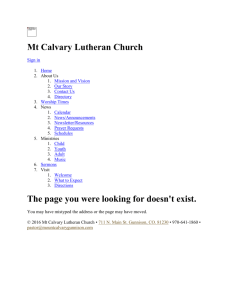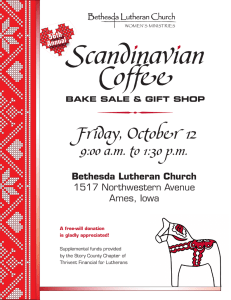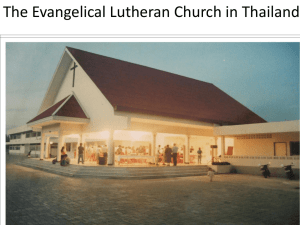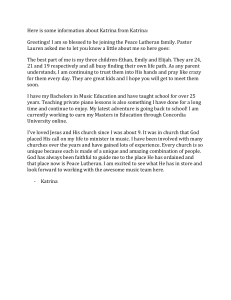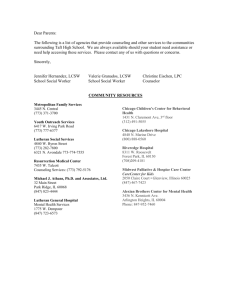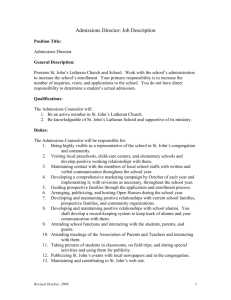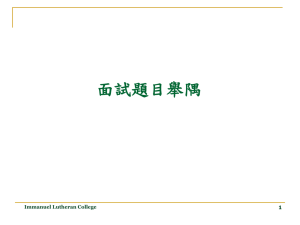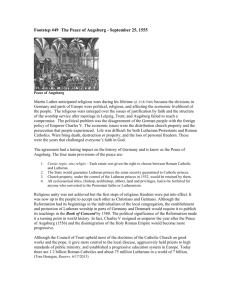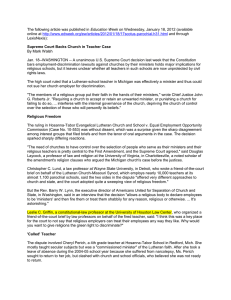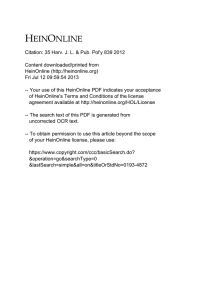This piece was posted to the Concurring Opinions blog on... Reviewing the Oral Argument in Hosanna-Tabor (Part One)
advertisement
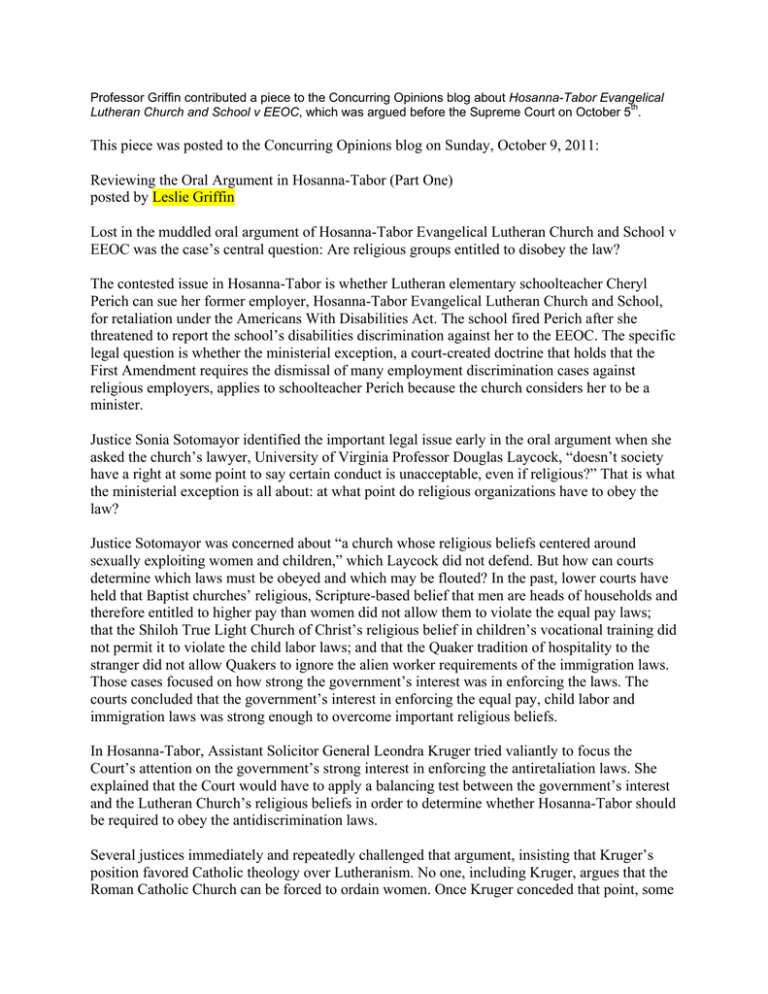
Professor Griffin contributed a piece to the Concurring Opinions blog about Hosanna-Tabor Evangelical Lutheran Church and School v EEOC, which was argued before the Supreme Court on October 5th. This piece was posted to the Concurring Opinions blog on Sunday, October 9, 2011: Reviewing the Oral Argument in Hosanna-Tabor (Part One) posted by Leslie Griffin Lost in the muddled oral argument of Hosanna-Tabor Evangelical Lutheran Church and School v EEOC was the case’s central question: Are religious groups entitled to disobey the law? The contested issue in Hosanna-Tabor is whether Lutheran elementary schoolteacher Cheryl Perich can sue her former employer, Hosanna-Tabor Evangelical Lutheran Church and School, for retaliation under the Americans With Disabilities Act. The school fired Perich after she threatened to report the school’s disabilities discrimination against her to the EEOC. The specific legal question is whether the ministerial exception, a court-created doctrine that holds that the First Amendment requires the dismissal of many employment discrimination cases against religious employers, applies to schoolteacher Perich because the church considers her to be a minister. Justice Sonia Sotomayor identified the important legal issue early in the oral argument when she asked the church’s lawyer, University of Virginia Professor Douglas Laycock, “doesn’t society have a right at some point to say certain conduct is unacceptable, even if religious?” That is what the ministerial exception is all about: at what point do religious organizations have to obey the law? Justice Sotomayor was concerned about “a church whose religious beliefs centered around sexually exploiting women and children,” which Laycock did not defend. But how can courts determine which laws must be obeyed and which may be flouted? In the past, lower courts have held that Baptist churches’ religious, Scripture-based belief that men are heads of households and therefore entitled to higher pay than women did not allow them to violate the equal pay laws; that the Shiloh True Light Church of Christ’s religious belief in children’s vocational training did not permit it to violate the child labor laws; and that the Quaker tradition of hospitality to the stranger did not allow Quakers to ignore the alien worker requirements of the immigration laws. Those cases focused on how strong the government’s interest was in enforcing the laws. The courts concluded that the government’s interest in enforcing the equal pay, child labor and immigration laws was strong enough to overcome important religious beliefs. In Hosanna-Tabor, Assistant Solicitor General Leondra Kruger tried valiantly to focus the Court’s attention on the government’s strong interest in enforcing the antiretaliation laws. She explained that the Court would have to apply a balancing test between the government’s interest and the Lutheran Church’s religious beliefs in order to determine whether Hosanna-Tabor should be required to obey the antidiscrimination laws. Several justices immediately and repeatedly challenged that argument, insisting that Kruger’s position favored Catholic theology over Lutheranism. No one, including Kruger, argues that the Roman Catholic Church can be forced to ordain women. Once Kruger conceded that point, some justices could not be distracted from the potential Lutheran v. Catholic battle that would erupt without a broad ministerial exception: JUSTICE ALITO: … are you not implicitly making a judgment about the relative importance of the Catholic doctrine that only males can be ordained as priests and the Lutheran doctrine that a Lutheran should not sue the church in civil courts? I don’t see any distinction between — I can’t reconcile your position on those two issues without coming to the conclusion that you think that the Catholic doctrine is older, stronger and entitled to more respect than the Lutheran doctrine. CHIEF JUSTICE ROBERTS: You’re making — you’re making a judgment about how important a particular religious belief is to a church. You’re saying — this may just be the same question Justice Alito asked — but you’re saying: We don’t believe the Lutheran Church when it says that this is an important and central tenet of our faith. On the other hand, the — the belief of the Catholic Church that priests should be male only, you do defer to that, even if the Lutherans say, look, our dispute resolution belief is just as important to a Lutheran as the all-male clergy is to a Catholic. JUSTICE SCALIA: I think that’s saying nothing different than what the Chief Justice suggests, that you think the one is more — is more important to — to Catholics than the other is to Lutherans. Although Justice Breyer understood that Kruger was focused on the strength of the government’s interest and not on the nuances of Lutheran and Catholic theology, he was self-describedly “stuck” because he couldn’t figure out why “going to court is a more fundamental interest than a woman obtaining the job she wants.” Breyer had a point; Kruger’s position that the government’s interest in antiretaliation law is stronger than its interest in antidiscrimination law is not evidently based in constitutional or statutory law. All she could say is that “the contours of the First Amendment doctrine at issue here will depend on a balancing of interests.” That balancing is the whole problem with the ministerial exception. It leaves courts choosing which religions are acceptable and unacceptable based on vague balancing tests. The Baptists, the Shiloh True Light Church of Christ, the Quakers and (potentially) the Lutherans should be angry if their beliefs are subordinated to the government’s interests while Catholic beliefs prevail. Petitioner Hosanna-Tabor would solve this problem by exempting religions from all the laws whenever religions assert ministerial performance is involved. Justice Scalia’s questions suggested the Establishment Clause requires that outcome. That solution is exactly backwards. The starting point should be a rule that requires religions to obey the law. The Establishment Clause should be violated by a rule that lets courts determine which theologies override government interests and which do not. The Court should be wary of issuing an opinion holding that religions are free to disobey the law. ____________________________________________ Leslie Griffin holds the Larry & Joanne Doherty Chair in Legal Ethics at the University of Houston Law Center and is author of Law and Religion: Cases and Materials (Foundation Press 2d ed. 2010).
